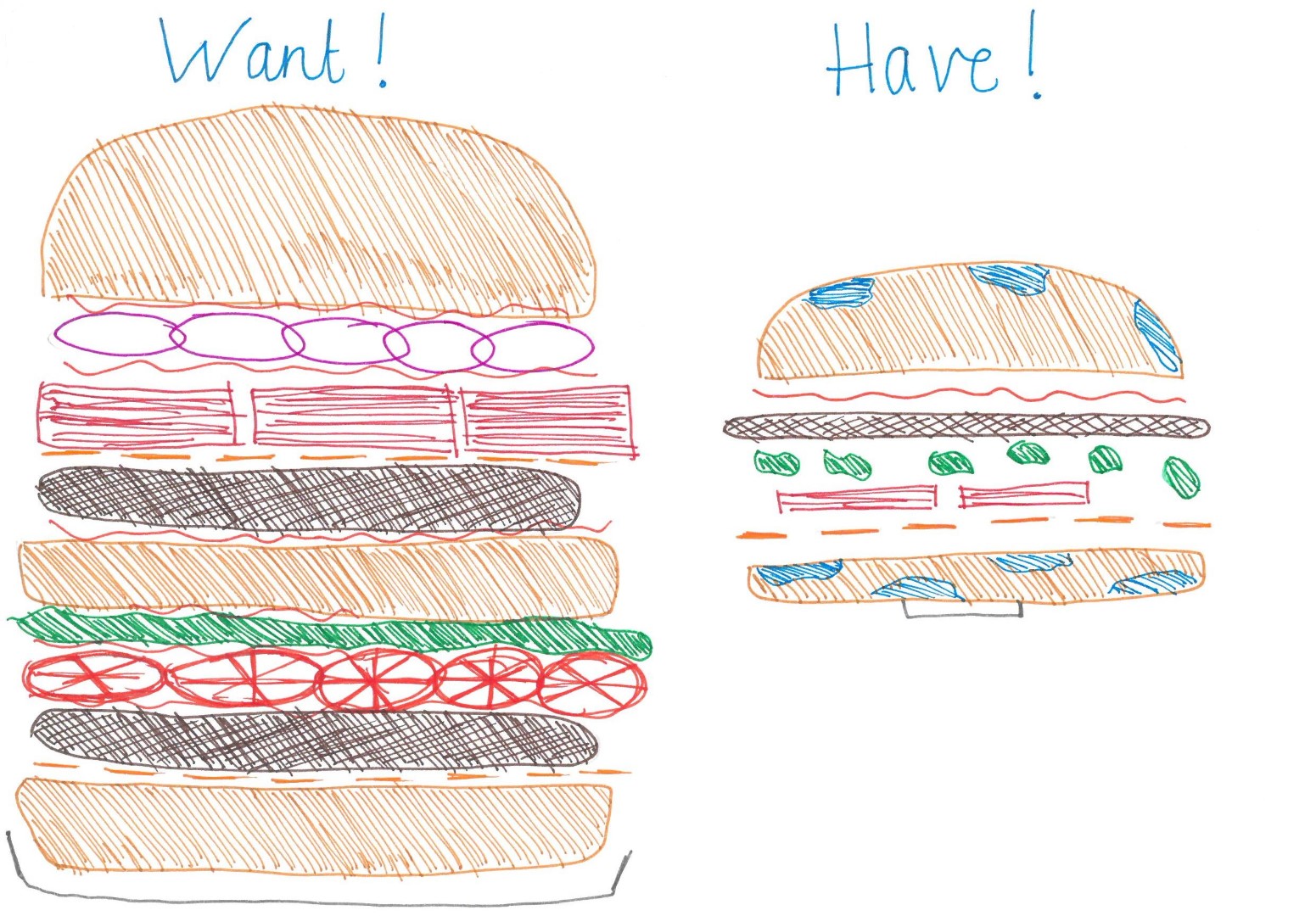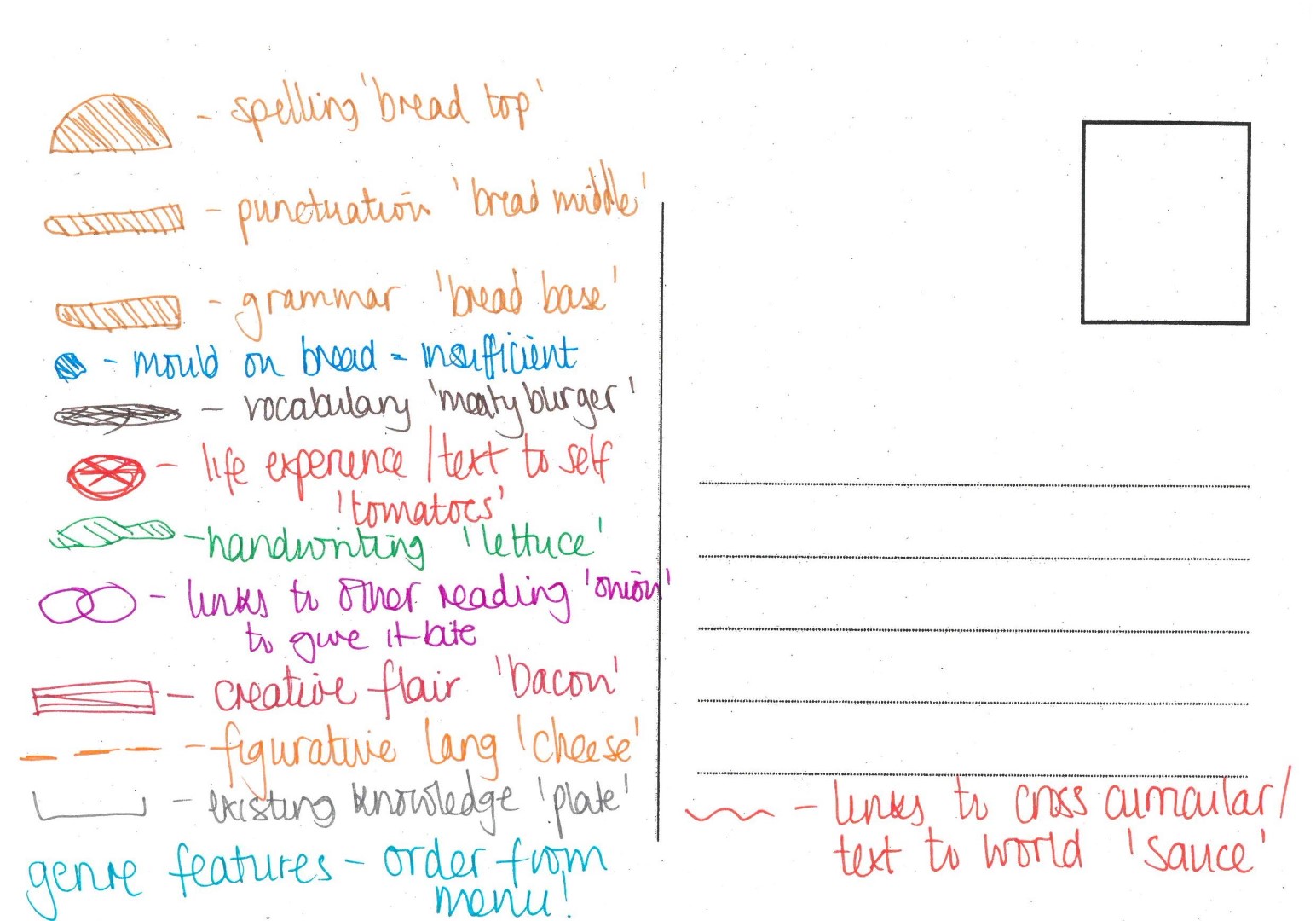MARCH - TEACHERS' EXPERIENCE OF ...
Teachers' experience of... evaluating books for UKLA book awards with the class
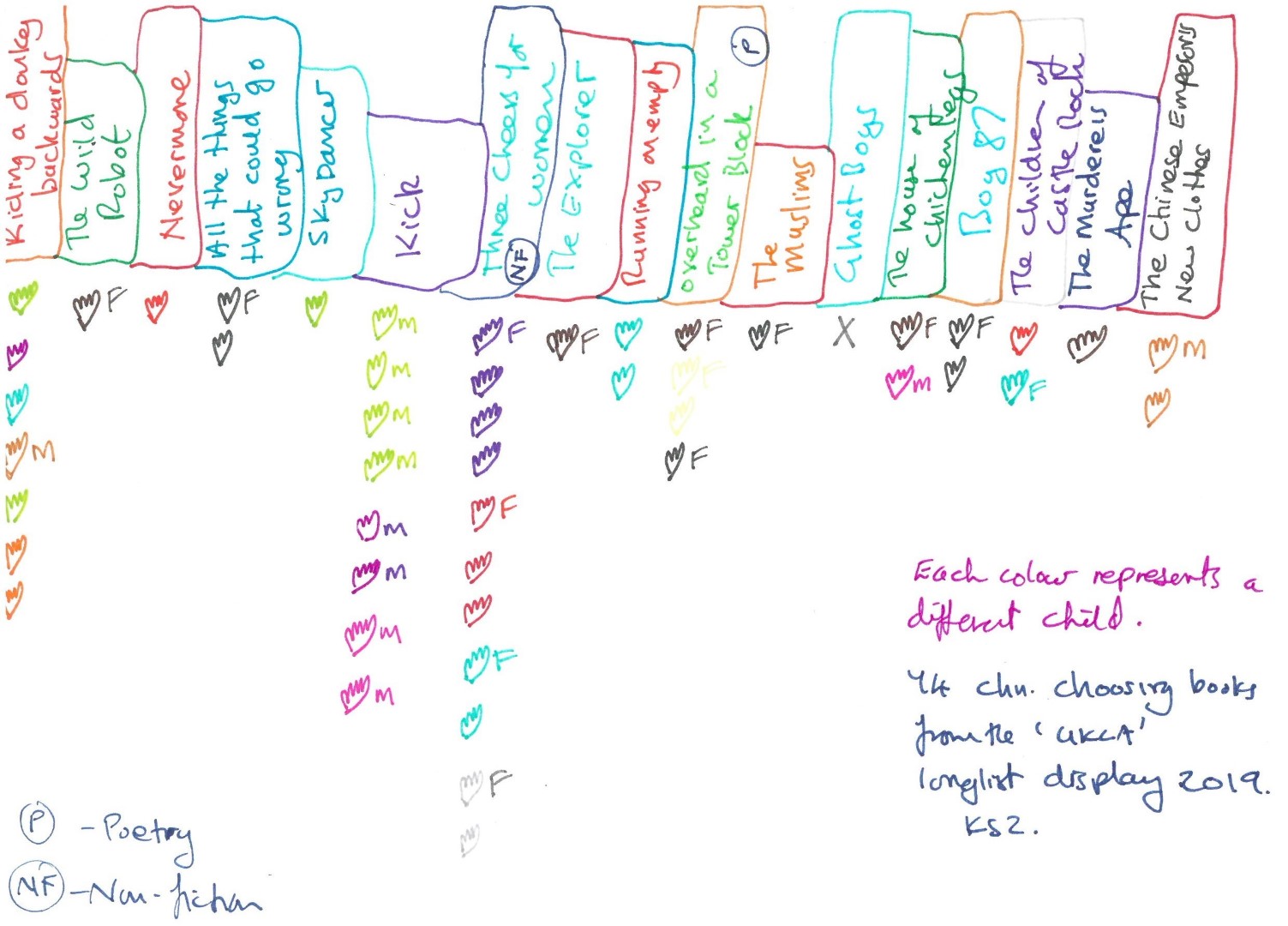
"So they were the 17 books that we had to read and as each book came to school we opened it as a class and I explained why the books were coming ... These are all the books. These hands represent how many people went to just take the book from the display, whether they looked at it for five minutes or whether they went away and read it. You can see some children, like that green child is in quite a few columns. I've put male or female. It was quite interesting to see what they went for and the fact that it was a separate display and how they chose which ones they were going for. It wasn't very scientific in that. I thought about I could have put a sheet there saying ‘If you take a book tick it’, and I thought we'll have some kids just going up all the time so they have lots of ticks so it was me just observing and seeing so it wouldn't pass a scientific test but it was just me noticing what books were taken."
Teachers' experience of... time spent planning compared with outcomes for the children
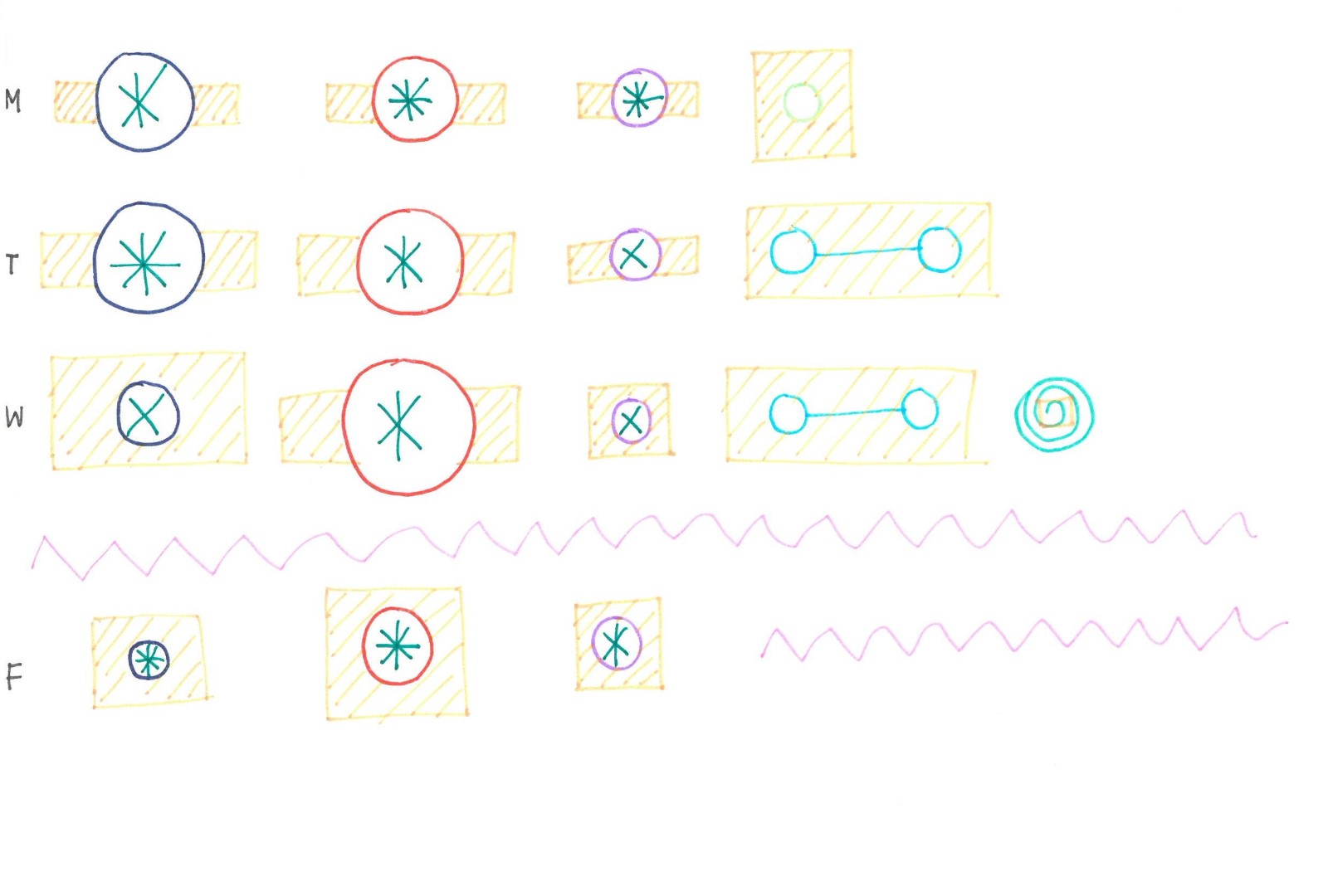
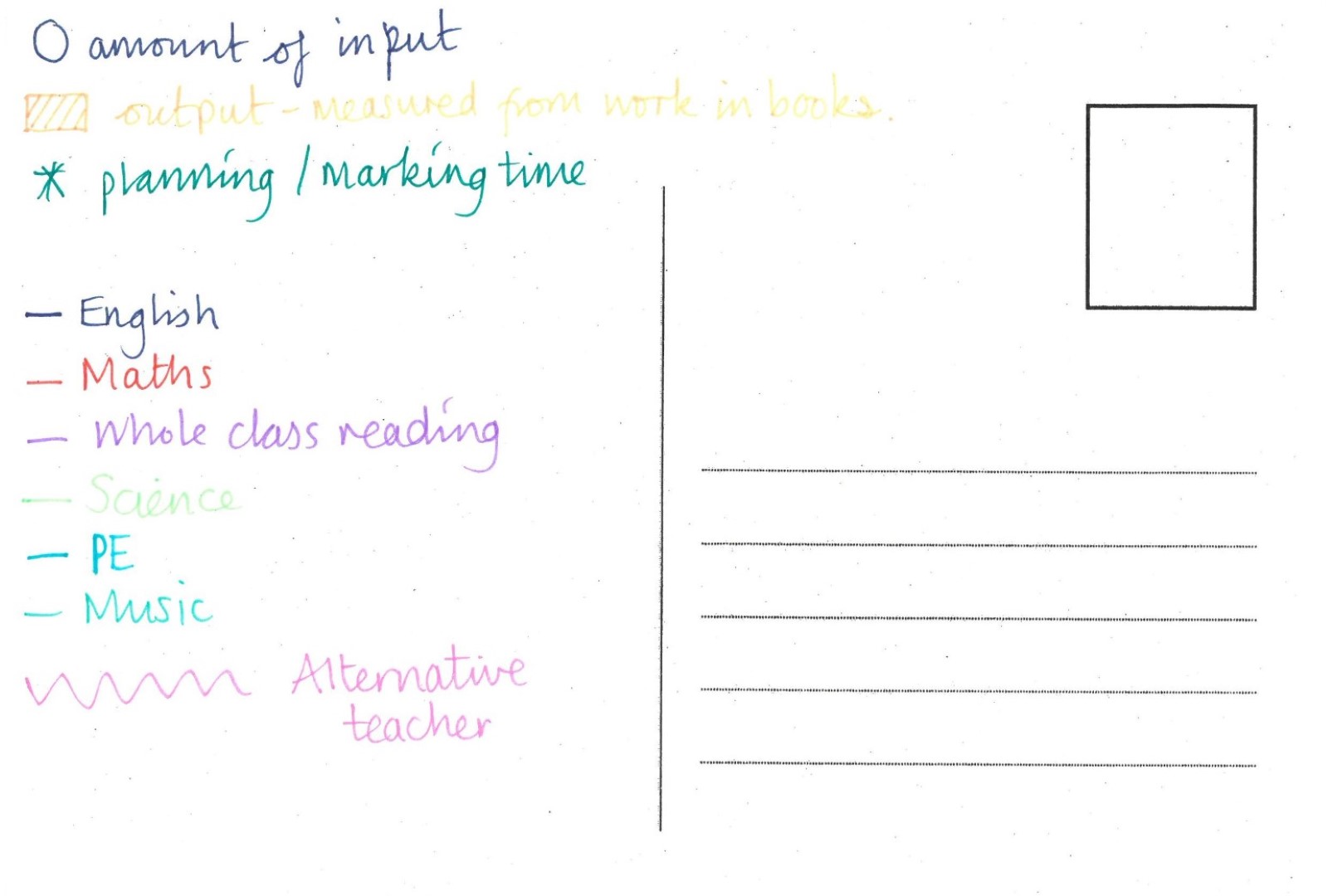
"So basically the circles on the sheet are the amount of input that a teacher has to give during a lesson and the days track across as you would read. The hashed boxes behind are the output of the child, so as you would imagine when there's a bigger input from the teacher that takes most of the lesson so the output tends to be a little bit shorter. When there's less input the output is greater because obviously you're giving children more time to actually do what they should be doing and then the asterisk crosses in the middle are the amount of time that went in to planning the lesson."
Teachers' experience of... discussing literacy with colleagues
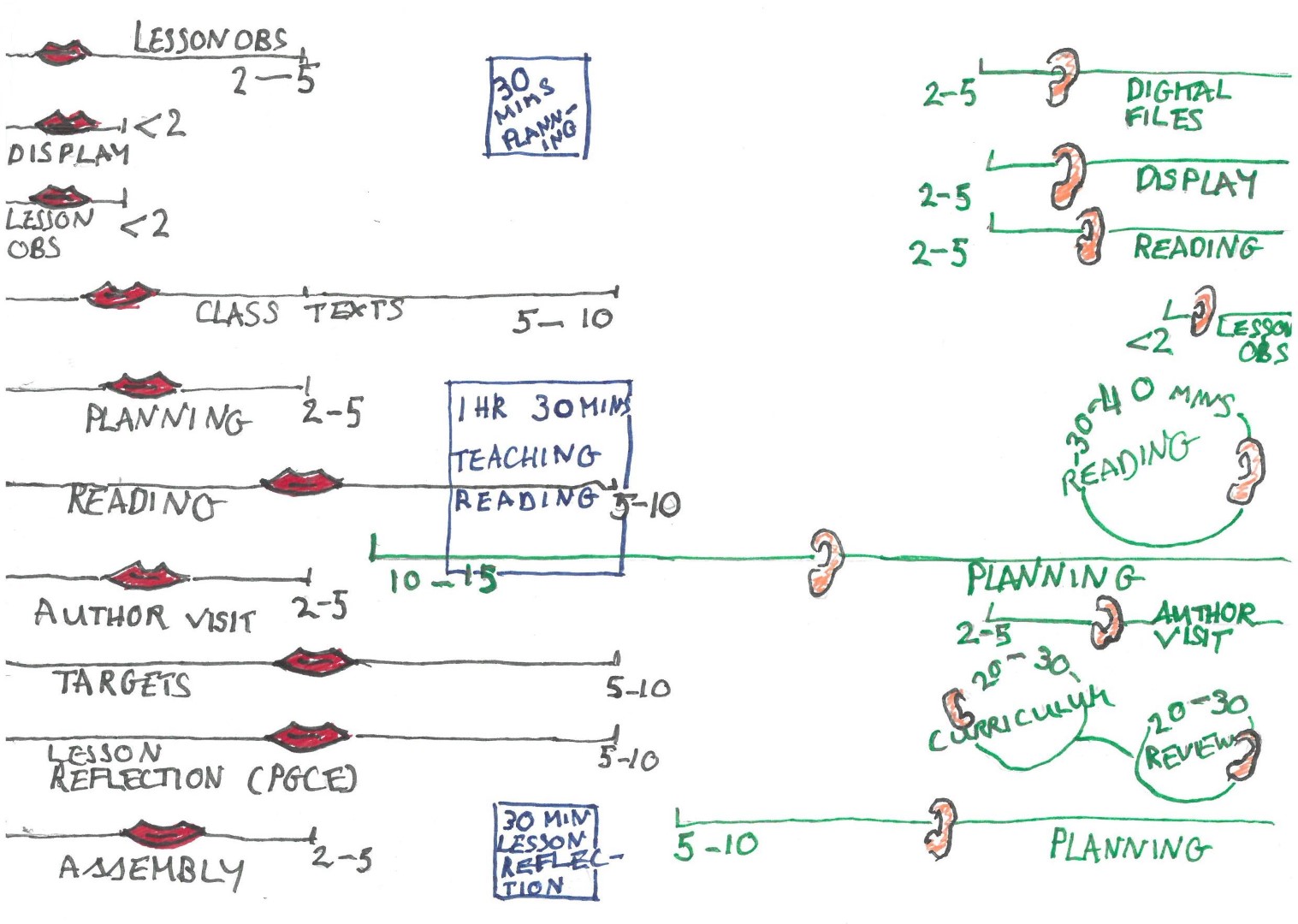
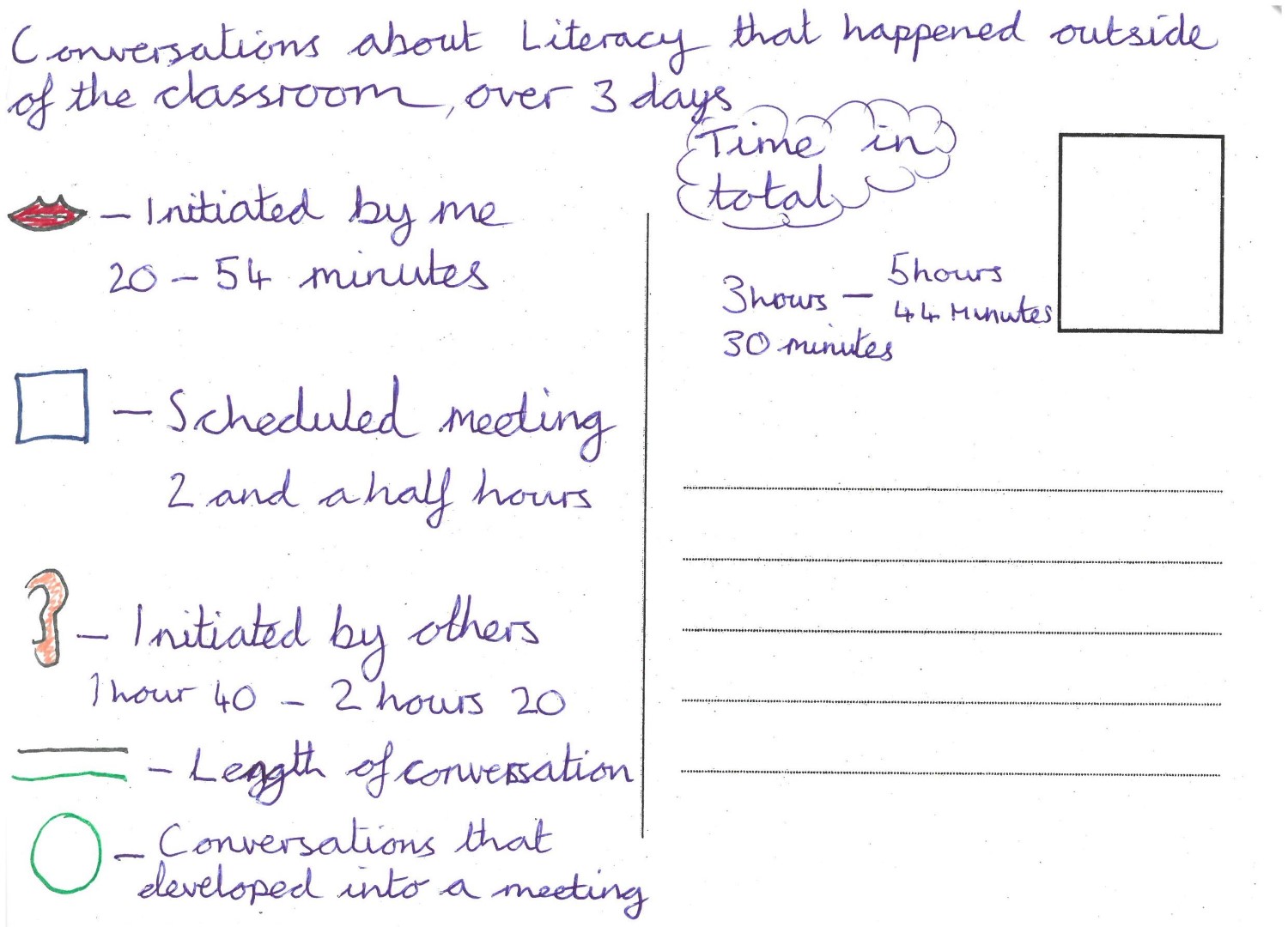
"So I've got one side of the postcard with the lovely red lips, it represents conversations that I've started with people ... And the conversations on the other side with the little ears, or they're supposed to be ears anyway, they are conversations that people have started that I've listened to at first and then engaged in a conversation. The squares in the middle are scheduled meetings and so what I've tried to do is with the length of the line show approximately how long the conversation was and I've broken it down in to little two to five minutes, five to ten minutes or however long and just jotted a little note of what the conversation was about. I was able to keep this up for three days and after three days it was driving me insane so I stopped!"
THIS ROW IS HIDDEN USING CUSTOM CSS AT THE ROW LEVEL
"I've done what I'd like in Year 4 writing versus what I'm working with! The blue is the mould to say that whilst there is some spelling, punctuation and grammar present there are holes in it; it's very flawed. My children aren't hot at spelling or using a dictionary to help them spell. Grammar has to be very structured and punctuation is a constant reminder, even the basics like we've just said, it's capital letters, full stops all the time. I went for bacon to represent creative flair and I've got possibly two children in mine that have some of that whereas the rest, it's tricky."
Teachers' experience of... where literacy arises during a week in school
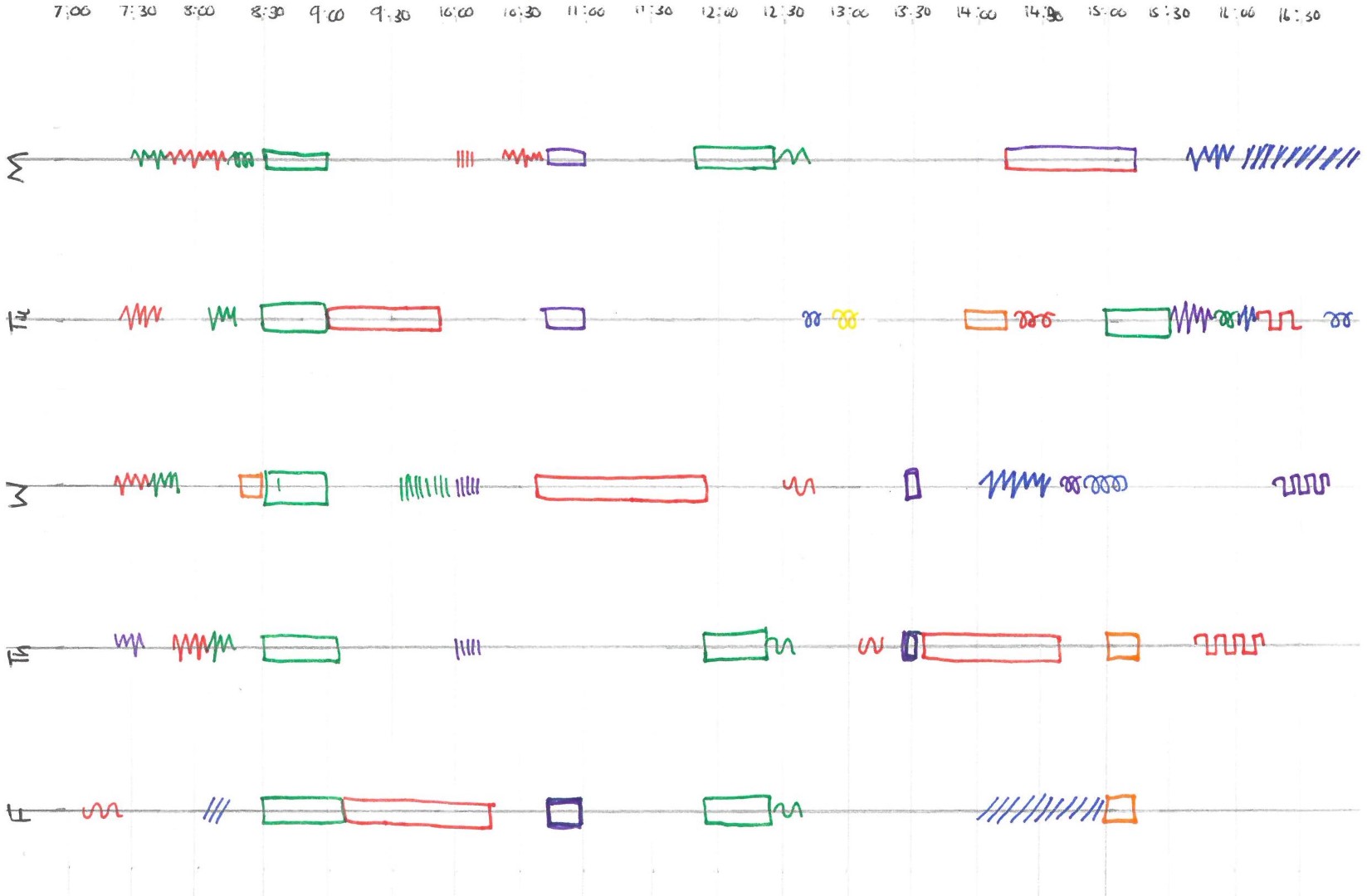
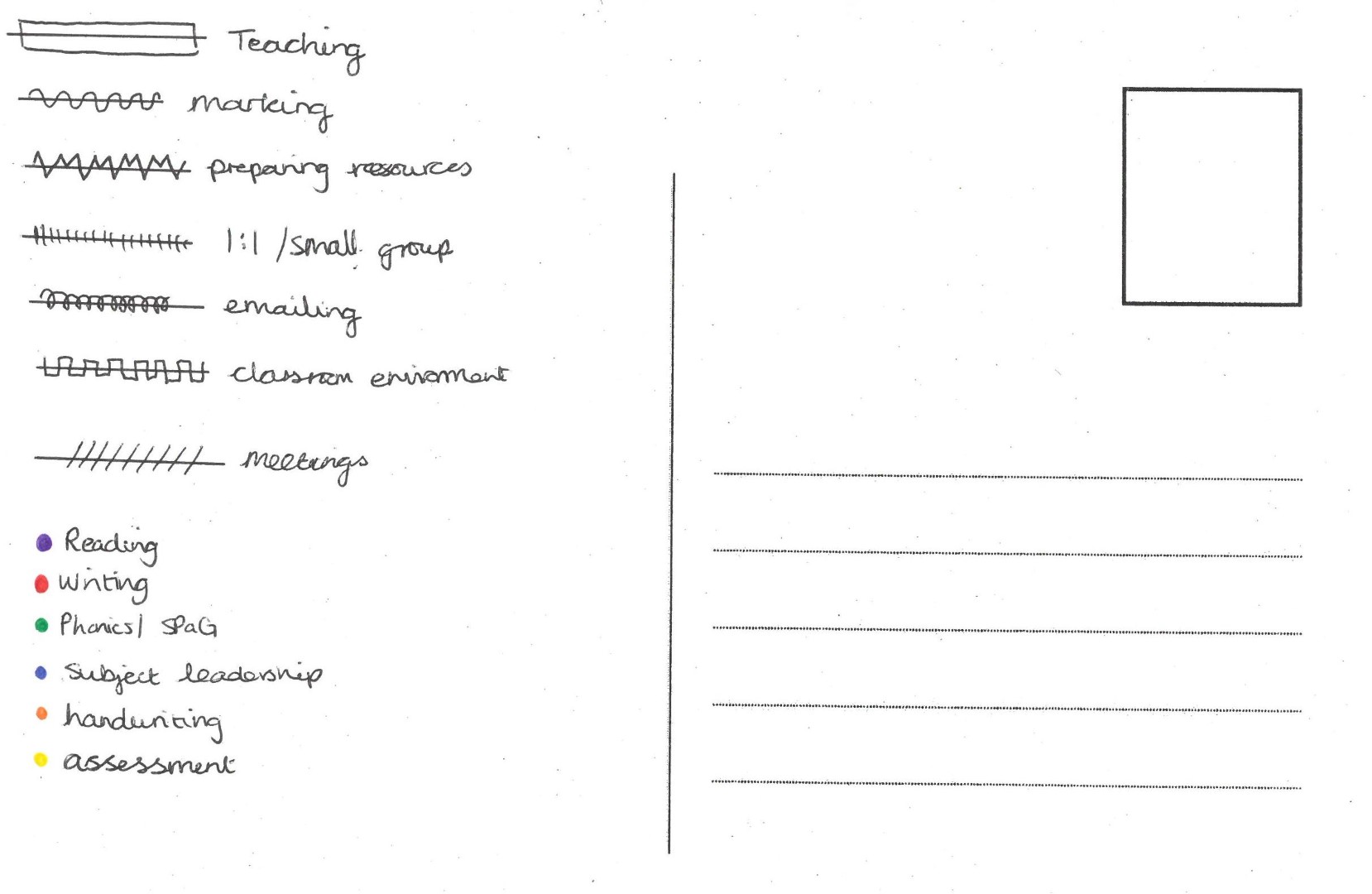
"So I just went through my entire week and everything English that I did ... So teaching, marking, resources, planning as well, one to one, small group work, emailing, classroom environment, meetings. Then the different colours are reading, writing, phonics and SPAG, leadership, handwriting and assessment. Then there's all the lines for times.
So there's this stuff at the beginning of the day when you're preparing resources, morning, and then there's this stuff in the evening, probably late in the afternoon where you're putting up displays and doing stuff and it just kind of struck me, it should have done, it's never struck me before, how a teacher's day begins and ends often with that really practical doing stuff activity."
Teachers' experience of... different aspects of literacy
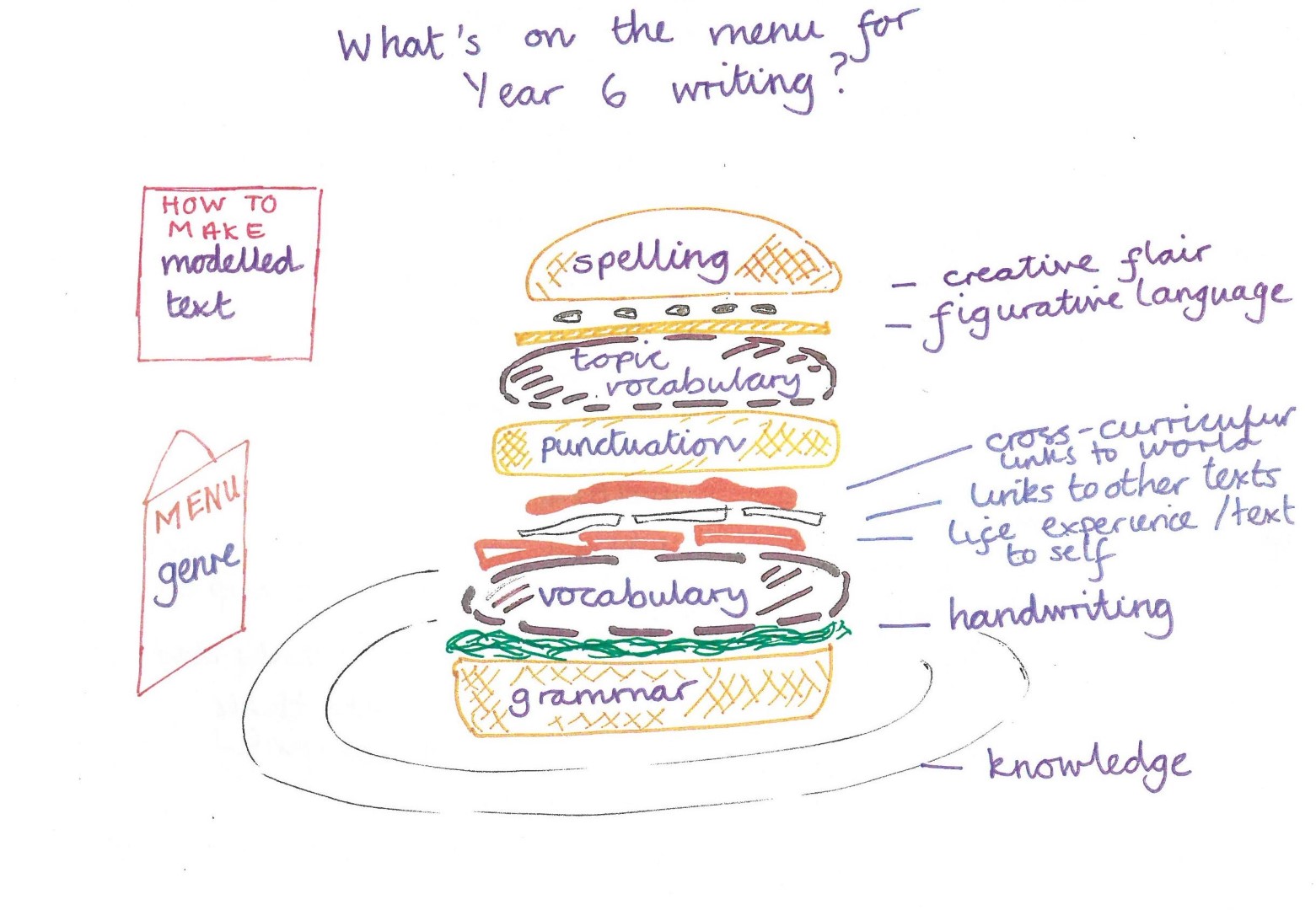
"So if you look at it in Year 6, I kind of listed what do I think are the elements in Year 6 writing, writing as much as literacy. I tried to think which would link to which ingredients and trying to think about, you know you wanted the counting part of it, so the size of the ingredients is important to how things are valued. So you can see the burger and I needed three buns so I did a bit of a big black thing. So you've got the grammar, punctuation and the spelling because those are some of the key things that are valued in there because if they don't get those right they don't get their expected in Year 6. Vocabulary is really key to us in Year 6 and across the school, that's a big school improvement programme we're doing at the moment and I was trying to think how do I justify having two burgers in there because it's Big Mac burger, it's got to make sense but actually I thought, no, vocabulary does work for both of them. There's topic vocabulary we've been teaching but also the other vocabulary, the conjunctions that you're getting them to use, the other more day-to-day that's not necessarily specific to the topic."
